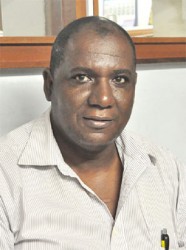Occupational Safety and Health Consultant Dale Beresford has told Stabroek Business that the sanitization exercise carried out at Bourda Market ought to have been replicated at other municipal markets affected by last week’s flooding.
“It was the common sense thing to do. The health hazards that would have obtained at Bourda Market in the wake of the flooding would have applied at the various other markets as well,” Beresford said.
Asked about the pressures associated with the need for vendors to resume trading in the shortest possible time, Beresford told this newspaper, “Those considerations would have to be balanced against the public health considerations and the dangers that arise out of leaving spaces that trade in food un-sanitized after a flood.”
According to Beresford, remedying the root causes of “the habitual flooding has now become a matter of national urgency.” He said it was the collective failure of government, the municipality and the private sector to put measures in place to mitigate the worst effects of flooding. “I understand that all of the various sectors have a role to play but at the end of the day the physical losses affect people and institutions across the board and in that sense all of us have a duty to work from the community up to help tackle the problem,” he added.

The one-time municipal safety and health official said it appeared that not a great deal had been learnt from the events of 2005 and 2006. “At the community level particularly, there appears to be a general sense of bewilderment whenever there is flooding. People have no emergency responses at their disposal. As far as the downtown business community is concerned, businessmen and women appear to have settled for losing stock and having to bale water out of their shops and stores at regular intervals. That is not a situation that we can be proud of,” Beresford said.
The consultant said there is need for awareness of “the changing dynamic of public health in the city and the various ways in which it impacts on livelihoods and on the economy.” He said that frequent flooding and the rising risk of food-borne diseases meant that the economy could be threatened by the high costs associated with treating diseases as well as the implications of food-borne diseases for the livelihoods of vendors.
It is Beresford’s view that frequent flooding and the inadequate post-flood cleanups place Guyana in a “public health danger zone. It is not just an issue of affected areas like municipal markets.
When the flooding occurs the vermin like rats and roaches seek refuge on higher ground and effectively take their diseases with them. What this means is that sanitizing exercises have to cover much wider areas.”
Beresford, who is the Managing Director of Optimum Safety Solutions, said the time is long overdue for a multisectoral discourse on risk assessment with a view to making decisions on key issues like flood insurance. “Obviously, there will be long and even difficult debates on these issues but that is better than sitting still and waiting for the same thing to happen to us over and over again.” He said that apart from the evidence of negligence by both the municipality and the government there were signs of delinquency on the part of the private sector as well. “The private sector cannot simply speak selectively on the issue of flooding as and when it chooses. It has to position itself to be part of a wider solution that goes beyond making public pronouncements since its own members suffer considerably whenever floods occur,” Beresford said.






